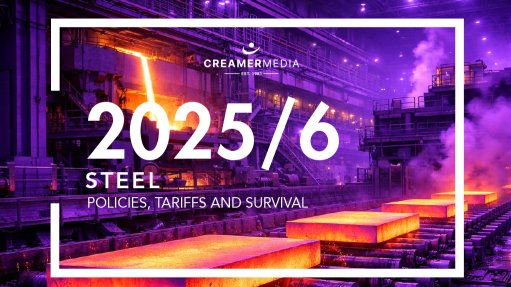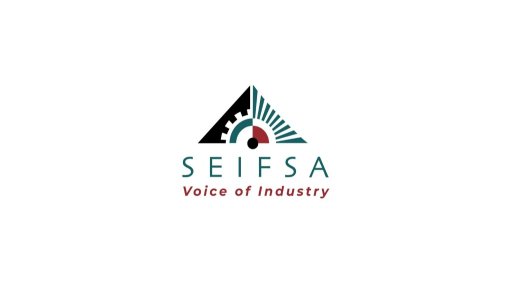Proper filtration improves profitability, productivity


TESTING FOR CONTAMINANTS When analysing lubricants in accordance with ISO-4406, they are tested for contaminants in the size ranges of 4 μm, 6 μm and 14 μm as the contaminants found in new oil could result in a catastrophic breakdown of equipment
Photo by ISO-Reliability
Fluid contamination occurs at every level of the production process, entering lubricants and acting as a “silent thief”, mostly undetected, and resulting in increased operating costs and a reduction in plant profitability and productivity.
Consequently, having the proper filtration systems can counter contamination and reduce normally accepted operating costs, says original-equipment manufacturer ISO-Reliability Partners.
When analysing lubricants in accordance with ISO-4406, they are tested for contaminants in the size ranges of 4 μm, 6 μm and 14 μm, ISO-Reliability Partners CEO Craig FitzGerald explains.
For example, if a customer used a 15 μm filter, depending on the filter’s quality, a majority of contaminants larger than 15 μm will be removed, while any contaminants smaller than 15 μm will remain in the fluid.
The vast majority of contaminants found in lubricating oils are smaller than 10 μm in size, passing directly through inline filters and reaching lubricated components. These “tiny engines of destruction” cause wear particle generation, which can only be removed with inline filters when their size distribution is large enough to allow for removal.
When analysing lubricants in a laboratory, there would typically be a large excess of contaminants in the 10 μm size range that were not removed by an inline filter.
FitzGerald notes that these contaminants are in new oil, without the customers’ knowledge, and could potentially result in a “catastrophic breakdown” of equipment.
“With a proper ISO microfine offline filtration system, we can remove those tiny little engines of destruction . . . allowing for a 99.999% reduction in the wear that takes place inside hydraulic or lubricating systems, significantly extending the life of lubricated components, the oil itself and inline filters.”
Additionally, the contaminants that previously resulted in component damage and wear particle generation are eliminated from the system, leaving very little work to be done by inline filters, thereby significantly extending useful life of these filter types.
Inline filters are generally a screen mesh, such as steel gauze or pleated paper, so if a solid particle larger than the gauze reaches it, the particle will be stopped, while still allowing smaller particles and liquids, such as water, sludge or varnish to pass directly through.
The filters are, therefore, inherently limited in terms of what they can filter out or remove. Inline filters offer minimal protection, where ISO microfine offline filters will remove a substantial amount, providing better protection to lubricating systems.
When specifying which filters must be used, certain challenges and criteria must be met, but design engineers will often compromise when it comes to filters to meet the system criteria.
“If the filters are too fine, they can potentially block flow and reduce system pressure. Making the filter courser will allow for fluid to pass through to the detriment of lubricated components, limiting what inline filters can achieve,” FitzGerald adds.
He points out that inline filters should not stop flow of oil. If the filter clogs up, a bypass valve will allow for flow around the filter. In this instance, though, there is a chance that up to 60% of the captured contamination can be washed back into the line, FitzGerald emphasises.
Microfine filters provided by ISO-Reliability Partners will remove particulates as small as 1 μm, including wear particles, dust, water or environmental contamination, as well as any algae that have formed within the product as a result of the presence of water or water moisture.
ISO-Reliability promotes offline bypass filtration as a result of its efficiency in oil purification and lube system protection. Through continuous circulation of the oil reservoir, ISO ultra-high efficiency filters will achieve a far greater level of cleanliness, at a much lower cost, in comparison to inline filtration performance.
Inline filtration solutions only operate when equipment is running whereas offline filtration systems can perform continuously even during maintenance periods. Further they are not restricted by predetermined pressures, flow rates and lube system design specifications.
Article Enquiry
Email Article
Save Article
Feedback
To advertise email advertising@creamermedia.co.za or click here
Announcements
What's On
Subscribe to improve your user experience...
Option 1 (equivalent of R125 a month):
Receive a weekly copy of Creamer Media's Engineering News & Mining Weekly magazine
(print copy for those in South Africa and e-magazine for those outside of South Africa)
Receive daily email newsletters
Access to full search results
Access archive of magazine back copies
Access to Projects in Progress
Access to ONE Research Report of your choice in PDF format
Option 2 (equivalent of R375 a month):
All benefits from Option 1
PLUS
Access to Creamer Media's Research Channel Africa for ALL Research Reports, in PDF format, on various industrial and mining sectors
including Electricity; Water; Energy Transition; Hydrogen; Roads, Rail and Ports; Coal; Gold; Platinum; Battery Metals; etc.
Already a subscriber?
Forgotten your password?
Receive weekly copy of Creamer Media's Engineering News & Mining Weekly magazine (print copy for those in South Africa and e-magazine for those outside of South Africa)
➕
Recieve daily email newsletters
➕
Access to full search results
➕
Access archive of magazine back copies
➕
Access to Projects in Progress
➕
Access to ONE Research Report of your choice in PDF format
RESEARCH CHANNEL AFRICA
R4500 (equivalent of R375 a month)
SUBSCRIBEAll benefits from Option 1
➕
Access to Creamer Media's Research Channel Africa for ALL Research Reports on various industrial and mining sectors, in PDF format, including on:
Electricity
➕
Water
➕
Energy Transition
➕
Hydrogen
➕
Roads, Rail and Ports
➕
Coal
➕
Gold
➕
Platinum
➕
Battery Metals
➕
etc.
Receive all benefits from Option 1 or Option 2 delivered to numerous people at your company
➕
Multiple User names and Passwords for simultaneous log-ins
➕
Intranet integration access to all in your organisation



















